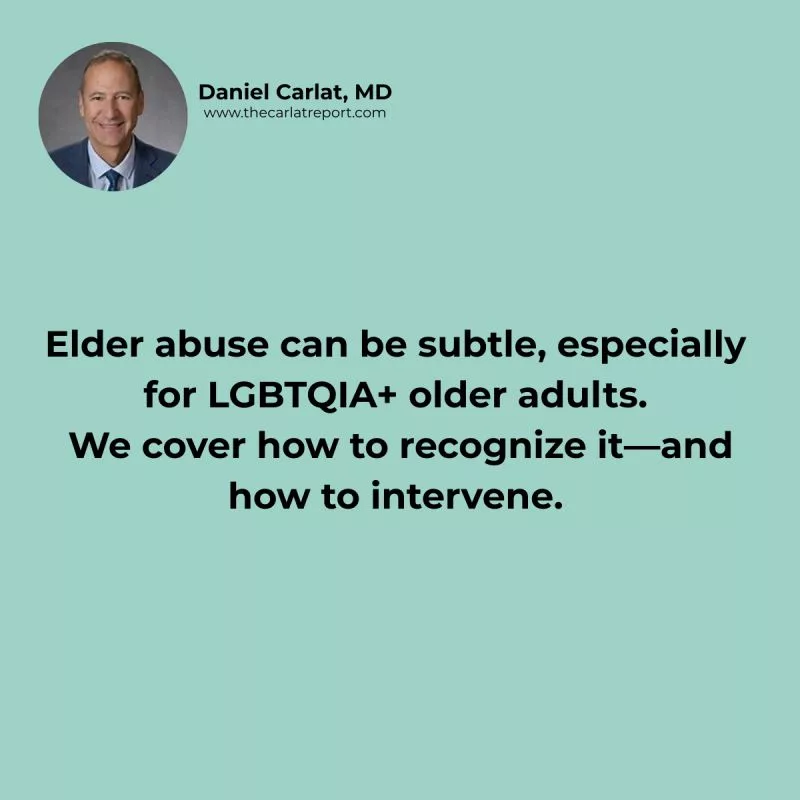Petra is 67. She’s a trans woman who’s been on estradiol for over a decade.
At her first visit with a new PCP, she was told this:
“What does it matter anyway, now that you’re not dating?”
That comment—dismissive, clinical, almost offhand—sent Petra straight to the patient portal.
She asked for a different provider.
She also asked that her niece not be told.
We cover Petra’s story in our latest issue of The Carlat Geriatric Psychiatry Report: "Addressing Elder Abuse and Promoting Dignity in LGBTQIA+ Older Adults." (Link in comments--no paywall). The focus is something we don’t talk about enough: how easily care can cross into control.
For LGBTQIA+ older adults, that line is crossed more often than we think.
Sometimes it looks like concern.
Sometimes it’s framed as protection.
But the impact is the same: autonomy is eroded, piece by piece.
→ A provider pressures someone to stop hormones
→ A family member withholds gender-affirming items
→ A nursing home “accidentally” deadnames someone, again and againIt’s not always dramatic.
But over time, it takes a toll.
The question this issue raises is simple:
How do we preserve identity—really preserve it—in later life?
Affirming identity isn’t extra—it’s standard care. Or at least it should be. What do you see happening in your settings—especially around power, identity, and autonomy in older adults?
→ If this resonates, feel free to share.
→ Follow me (Daniel Carlat, MD) for grounded reflections on clinical psychiatry.
Join the conversation on LinkedIn with Dr. Carlat.


_-The-Breakthrough-Antipsychotic-That-Could-Change-Everything.webp?t=1729528747)



